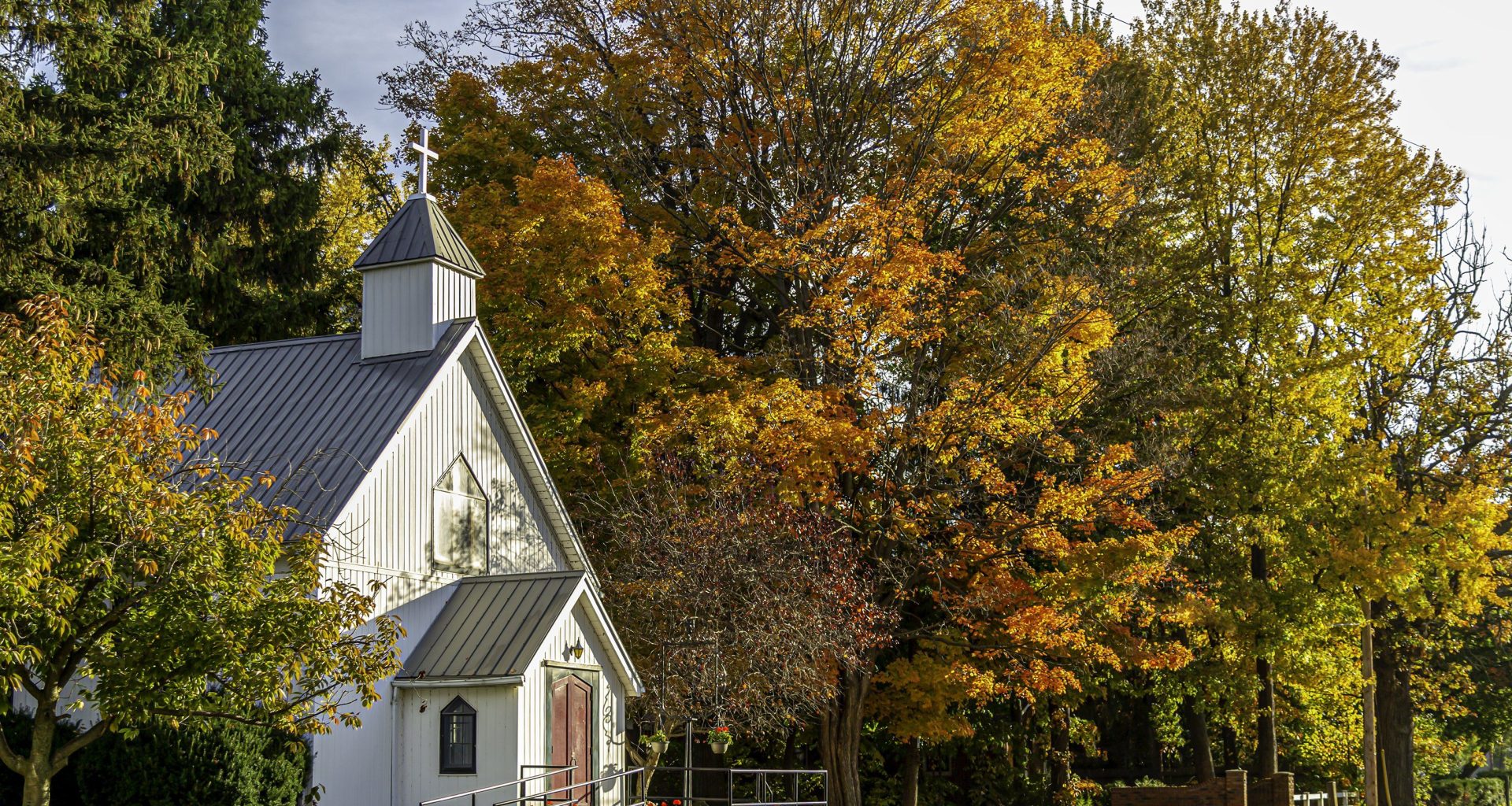Cities hustle and bustle, small towns hum. Six days out of seven in the little town where I live, you can hear the low rattle of log trucks playing hopscotch over potholes in county roads that haven’t been solid since Bill Clinton was governor. The chug-a-chug of the Georgia Pacific train marks 6 o’clock on both ends of the day. And the sawmill whistles at us morning and noon like a camp cook calling folks to breakfast and lunch. But on Sundays, the hum becomes hymns, and the only noise you hear in the middle of town is the sound of bells clanging from somewhere atop the Methodist Church.
At 11 o’clock on Sunday mornings, you could throw a brick down Main Street and not have to worry about hearing the sound of breaking glass. You’re unlikely to hit anything but a stray dog or a backslider. And both know better than to be wandering around such a place at such a time.
You can move away for a quarter of a century, and when you walk through the doors, you will likely see the same old hymn books peeking from behind the same beaten pew racks as when you left.
Not everybody goes to church here, but everybody has a church. There are as many pews, padded and otherwise, as people in this town. A place for everyone. Even our atheists have been baptized a time or two.
Like most southern towns, we serve our religion like a buffet bar. There are Baptists and Methodists and Churches of Christ for the blue-collar folks, Catholics and Lutherans for the immigrants, Presbyterians and Episcopalians for those with either a lot of money or a lot of debt, and half a hundred different kinds of Pentecostals for those who believe that inspiration is 75% perspiration. On Sundays, the Lord rides the circuit, making himself at home with all of them. No surprise, either, because they have all built him a house to call his own.
Some are as big as factories; some are the size of double-wide trailers. A few are red brick edifices with electric signs and old men on golf carts offering a shuttle service from the parking lot. But most are humble white buildings held together by tenpenny nails and prayer. Although age has many of them looking as ragged as an old beggar and the paint peeling off like dead skin, there’s a cross on it somewhere ending all discussion, putting to rest any doubts — this is indeed the house of the Lord. World without end, Amen.
Very few of our churches here are architectural masterpieces, but the faithful will remind you that for a long time, God was happy to camp out in a tent. And when the Lord got tired of “dwelling under curtains,” he said to the prophet, “Thus saith the Lord of hosts, consider your ways. Go up to the mountain, and bring the wood, and build me a house; and I will take pleasure in it …” The churches in my neck of the woods are solid, at least, with roofs and walls and windows that don’t leak all that much. So what if it has shifted through the years and leans a bit off kilter? Glory is a heavy thing, and a people can’t encounter the divine without being moved.
I suspect that the majority of our churches can all boast of stained glass, even if they only have a window as big as a dinner plate. Some have carpet, others rough-hewn wood floors. The majority have wooden altars they call “mourner’s benches” the tops of which are now worn smooth as a sow’s belly from generations of sinners kneeling over them in search of a second chance.
You can move away for a quarter of a century, and when you walk through the doors, you will likely see the same old hymn books peeking from behind the same beaten pew racks as when you left. And the same old organ being played by the same old lady in the same old cat glasses. At first glance, you think that many of the other familiar faces are gone, but, no, they are still there. They have just moved around back where they pray quietly with their faces toward the sun and flowers above their heads.
I grew up in these churches, crawling up the rows of choir lofts and toddling down their threadbare aisles. I spent many Sundays dodging funeral fans and hellfire and damnation. I was nursed in their cry rooms, taught in their Sunday School classes, fed in their fellowship halls, whipped in their bathrooms, and wept over their altars. I have carved my initials on the backs of their pews and written my name a dozen times on their membership rolls, but these churches have left a bigger mark on me than I ever did on them.
It is not my contention that small churches in small towns are better or holier than an urban cathedral. I have worshiped in large churches in large cities and was not disappointed with either the service or the setting. But for some reason, when there’s no expansive gallery where I can hide, no vacuous corner where I can get myself lost, no meandering crowd into which I can disappear — nothing between the Almighty and me but some knotty pine and white paint — I can’t help but feel just a little closer to heaven.
“Surely goodness and mercy shall follow me all the days of my life, and I shall dwell in the house of the Lord forever.” — Psalms 23:6
Editor’s note: This article appeared originally on Substack.
“No Jesuit Tricks” is a pseudonymous Anglican southerner who writes “Poiema,” a Substack newsletter ruminating on goodness, truth, and beauty while poking the zeitgeist with a sharp stick.
Source: TheBlaze
